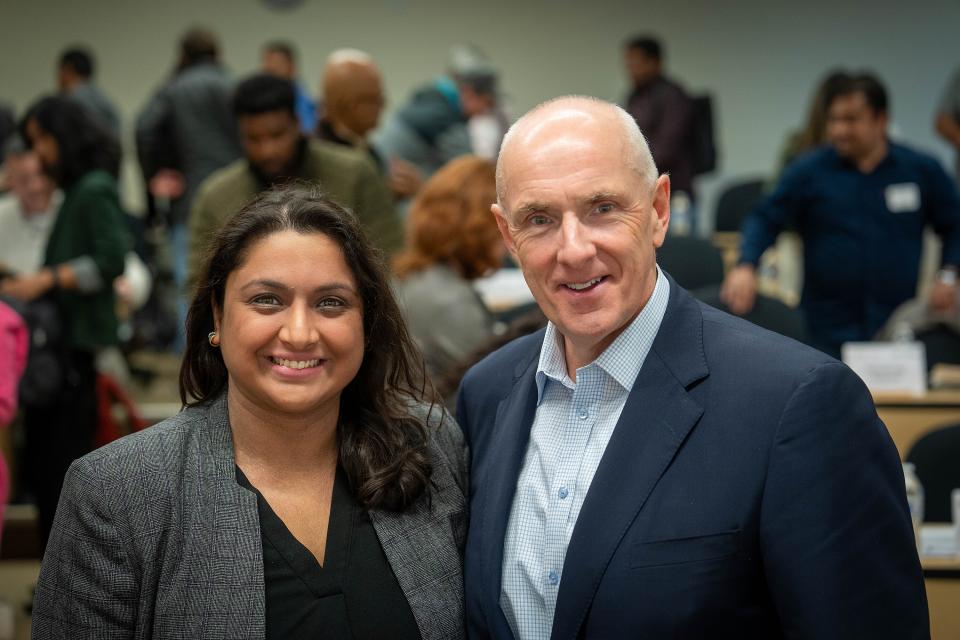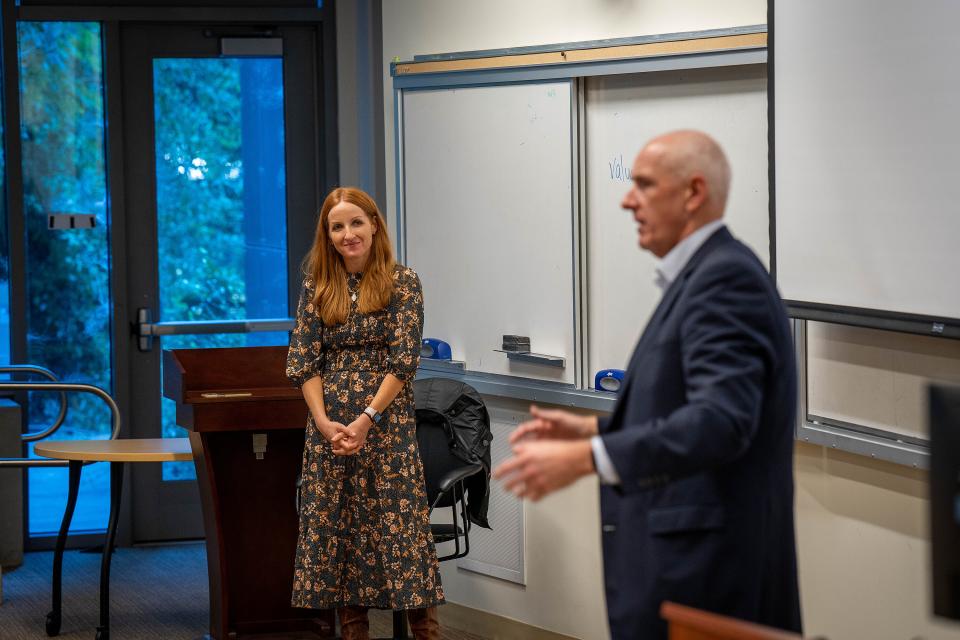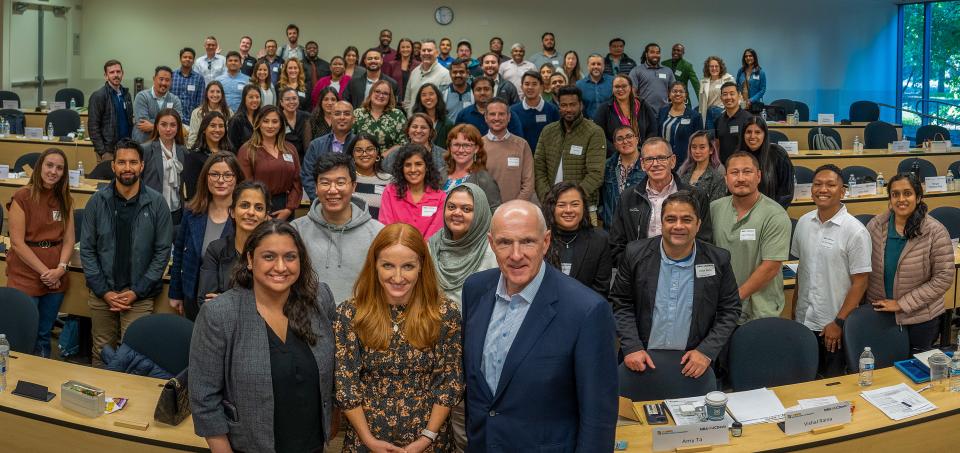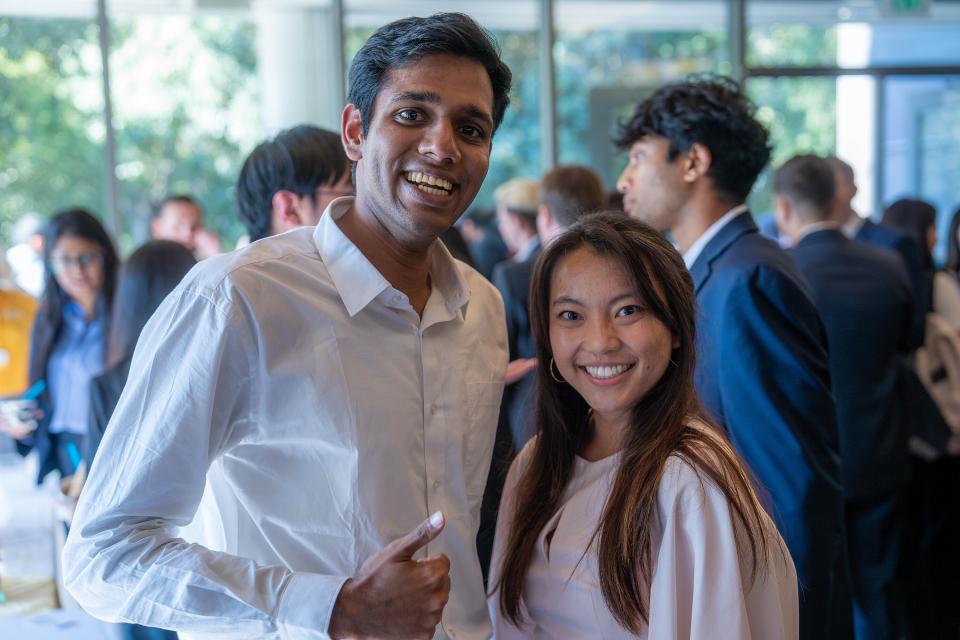From Self-Doubt to Success: Personal Branding Insights from Sutter Health CEO
Guest Lecturer: Warner Thomas, president and CEO of Sutter Health

As a physician going through a career pivot, personal branding is essential, especially when I found out that it’s more than a business, a hustle, or a side gig. It’s defining what makes you get up in the morning excited to start a new day, what gives you the feeling of “I’m supposed to be here” and knowing you have no regrets. It’s about finding your “why.”
Many MBA students have thought about their personal brand, are in the process of building one, or they are constantly changing it. The task can be daunting, but it is worth the self-reflection to understand your own values and talents - all the things that make you unique.
During the Personal Branding Residential, Lecturer Vanessa Errecarte gave us a toolbox of frameworks to build a strong personal brand. We workshopped logos, vision statements, and reflected on our personal hero’s journey.
At the end of the first day, we had the privilege of hosting Warner Thomas, president and CEO of Sutter Health, as a guest speaker.
Sutter Health is a not-for-profit integrated health system headquartered in Northern California that cares for more than 3.5 million patients in one of the most diverse and innovative regions of the country.
Thomas discussed his career trajectory from finding a mentor to making a big move from New Orleans to Sacramento and all the ups and downs that led him to where he is now.

He explained how he found his why, and gave insight into key lessons to be successful, confident, and most of all, happy.
Everyone Feels Like an Imposter
We strive to be an “expert” in our respective fields, and many times we feel we are the only fool in the room.
Imposter syndrome is very real and can be a key hindrance to presenting yourself, and even your personal brand, confidently. The reality is that everyone feels like an imposter, and expertise is relative.
The biggest hurdle to overcome when finding your why is self-doubt. It’s a universal struggle, especially in higher education. A systematic review published in the Journal of General Internal Medicine shows as much as 80% of graduate students, college students, nurses, medical students and professionals experience imposter syndrome.
The goal shouldn’t be to make yourself the smartest person in the room but to learn from others and share the expertise you have. Building and sustaining that confidence and using your curiosity to learn and grow can be more impactful than knowing the answer to every question thrown your way.
To overcome imposter syndrome, the first step is to ask yourself what is driving your fears. Focus on what you can control—your attitude, which influences your outlook and perspective.
Make Change Work for You
Planning for change is no easy task but remember the way to success is to “plan your work and work your plan.” That means adapting and using change for growth and progress, which is healthy for a brand.
Without change, brands remain stagnant because of the hesitation and fear of what the future might look like.
Progress, Not Perfection
When developing and working on your plan, you may have a meticulous approach and want to get every detail right. Striving for perfection should not be the goal.
Incremental progress allows for adapting, reflecting, and enjoying the journey rather than focusing on the end goal.
Being a lifelong learner means continuing to find opportunities to not only learn but to teach others. Mentorship is the hallmark of success, and it is essential to both find a mentor and be a mentor for others.
There is a wealth of knowledge that you can provide to others and learn from them at any stage of your career. It is also important to observe both competition and compliments as they can be a passive form of mentorship and learning along your personal branding journey.
Gaining Tools for Personal Branding
I walked away from the residential with a toolbox of how-tos to implement our personal brands. Hearing from Thomas helped us learn that imposter syndrome and hurdles in confidence never really leave us.
The key is to identify it as such and move forward anyway, especially with your own personal brand.
A lesson that stood out to me was the personal branding, much like corporate branding, is a continuous process, one that requires staying grounded and focused, but also adapting and making small steps of progress.
So, as you embark on your journey, remember to enjoy the process, reflect, and applaud yourself for the progress you make along the way. Just as Vanessa said in class, replace “What is holding you back?” with “When will you get started?”



